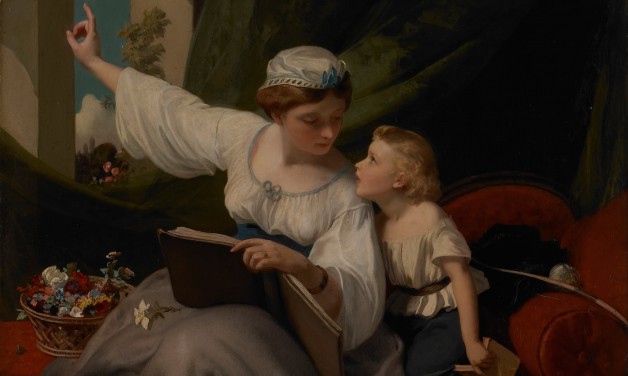Thinking back on childhood wishes and dreams, it seems that recollection of those innocent desires always occurs in conjunction with the warning, careful what you wish for! Perhaps these words of caution were repeated so many times by parents and teachers that I automatically associate them with idle dreams and thoughtless desires. Regardless of the weight I gave to such authorities in my youth, my relatively brief experience as an adult has taught me that the grass does always appear to be greener on the other side. No matter how hard I strive to achieve and attain the objects of my desires, I don’t always feel as happy and content as I had planned that I would.
In their (dis)enchanting musical, Into the Woods, Stephen Sondheim and James Lapine explore that curiously unfulfilling dimension of attaining the objects of our desires. The opening number, “I Wish,” cleverly parallels the restlessness we experience in the state of desire. Several characters join in the song, each opening with the phrase I wish. This restlessness and, in some cases, desperation evokes the longing and yearning of the soul for its fulfillment. After these characters’ wishes are fulfilled at the conclusion of Act One, they begin to realize that perfect happiness has not been attained, and each of their situations begins to unravel as the Second Act unfolds. Interestingly, Sondheim chooses to conclude the musical not with a warning to take care of what we wish for; rather, he offers a warning to parents about how they present fairy tales to children, for they will listen.
Into the Woods presents a very sober, yet compelling illustration of disappointment in the midst of fulfillment for a “grown-up” audience of individuals who are familiar with this nagging sense of non-fulfillment. It is, perhaps, most telling that the finale is addressed to parents: “Careful the things you say / children will listen.” On the one hand, we should not become the witch who locks the child away in a tower in a misguided effort at protection from the evils of the world, but we should also take care not to give the impression that we can find absolute fulfillment and happiness in this life. We can tell children fairy tales and encourage dreams, but we should make sure we do not lead them to live apart from reality.
From this cautionary tale about life and all its complications, we can glean lessons that harmonize well with Catholic teaching on the human person and ultimate fulfillment. We all have many hopes and desires, but the ultimate fulfillment of any person is none other than the beatific vision of God. As a consequence, no matter how many of our goals we reach, we will always desire something more, until we arrive at our final homeland. This does not mean that our desires are inherently evil or problematic; they only become so when we misconstrue them for what they are not, namely God.
It seems that today so many people struggle with finding the proper balance of soaring dreams and grounded expectations. Whether they entail finding an ideal spouse, starting the perfect family, landing the six-figure job, or satisfying idle curiosity, these goals represent fleeting goods that can never give us absolute happiness. Once we get our hands on them, we will find ourselves wanting something more. If we misconstrue any of these as the ultimate good, then we are bound to realize that same perplexing sense of disappointment that Sondheim’s characters experience. So the problem is not so much that we wish, but how we construct—or misconstruct—our wishes.
We can and should hope for good things in this life, but we should not expect them to completely satisfy us. Likewise, we can tell children fairy tales and encourage them to have dreams, but we should not abandon them with only these fairy tales and dreams to guide them. Life is complicated, and eventually children grow up and can appreciate this fact. At such a point, they are ready to be taught that the longing for a happily-ever after does, indeed, point to a real ending: to dwell in the house of the Lord, all the days of our lives.
✠
Image: James Sant, The Fairy Tale







